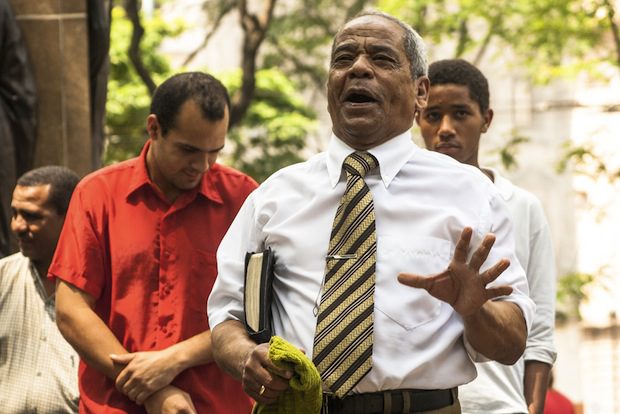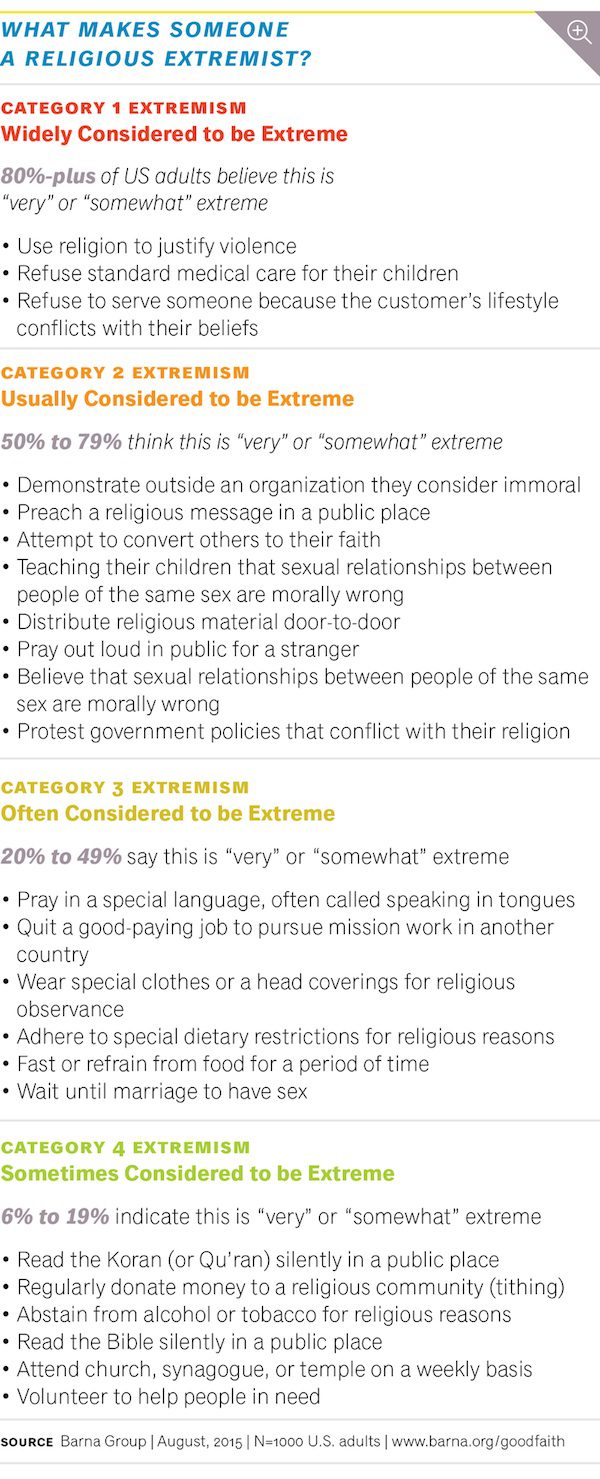The Threat From ‘Extreme’ Christians

A day like today, with dozens dead and hundreds injured in Brussels because of Islamic extremists, makes all of us more anxious about religious fanaticism. All of us who are not Islamic extremists ourselves agree that what ISIS did in Brussels qualifies as religious extremism.
But here’s something disturbing from the Barna Group, the Evangelical Christian research firm: huge numbers of Americans believe that things that were until just yesterday considered a normal part of American life are now “extremist”. Look at this chart:

Says David Kinnaman, head of Barna:
“The research starkly demonstrates the ways in which evangelicals and many practicing Catholics are out of the cultural mainstream. In fact, skeptics and religiously unaffiliated are now much closer to the cultural ‘norm’ than are religious conservatives. In other words, the secular point of view, which says faith should be kept out of the public domain, is much closer to the mainstream in U.S. life.
“This fact explains why millions of devout Christians are experiencing such frustration and concern. They are feeling out of step with social norms and the cultural momentum. This is most significantly felt when it comes to social views, such as evangelicals’ convictions on same-sex relationships. However, the perception of ‘social extremism’ also applies to many other beliefs and practices, including personal evangelism and missions work.”
Kinnaman and Gabe Lyons have a new book out, Good Faith, in which they address these new social and cultural realities that orthodox Christians have to navigate in post-Christian America.
On The Atlantic‘s site, Evangelical writer Jonathan Merritt says that casual use of the word “extremist” is dangerous:
In an age of religious terrorism, “extremist” is too damaging a word to be tossed around with such little discretion. When society slaps the E-word on something, it marks it for marginalization. And if the data is right, tens of millions of religious Americans may be at risk of being ostracized, sidelined, or banished from social acceptability because of their beliefs. These are the very communities best positioned to attack genuine religious extremism. But labeling them ‘extremist’ simply encourages alienation and radicalization.
One of the great ironies of this politically correct age is how those who most champion tolerance are often in such great need of the virtue themselves. Society calls “extremist” those believers they consider to be rigid, narrow-minded, and unaccepting of others.
Carelessly painting such wide swaths with a caustic descriptor is its own form of intolerance. It’s refusing to accept those who are less accepting. It’s coercing someone to convert to your way of thinking to keep them from converting others to their own. It’s marginalizing one group to keep them from shaming some other marginalized group. It contributes to the very problem it’s trying to solve.
Amen. Look, if you are a religious conservative of any sort, this is going to affect you. “Extremist” means “dangerous.” This is the country, and the culture, in which we live now. You had better find the sources for resilience, or you’re not going to make it through with your faith intact, nor will your kids. Like I said at the Q Conference last year in Boston, you can be as winsome as you like, but if you’re faithful to orthodox Christianity, they’re still going to hate you.
Subscribe for as little as $5/mo to start commenting on Rod’s blog.